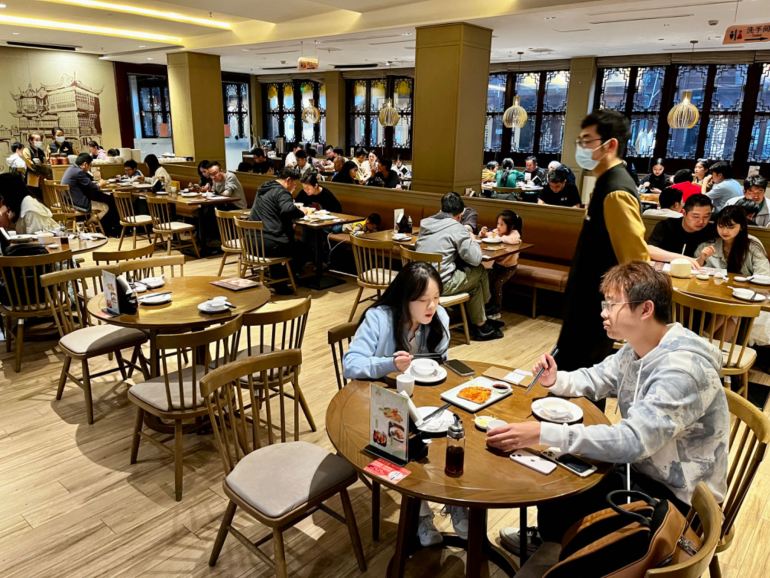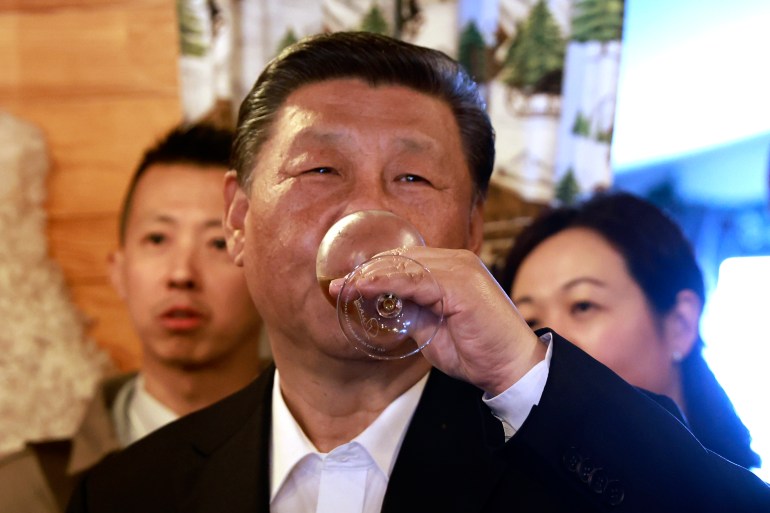Shanghai, China – “The Chinese take great pride in their food,” said a memo prepared for US President Richard Nixon before his groundbreaking visit to the People’s Republic of China in 1972. Nixon’s lavish state banquet with Chinese Premier Zhou Enlai in Beijing, broadcast live to the world, was crucial in improving U.S. public opinion about a country that had remained hidden for decades.
More than half a century later, food is once again playing a central role in fostering warmer U.S.-China relations. With Secretary of State Antony Blinken and Treasury Secretary Janet Yellen recently completing their second visit to China in less than a year, meals have emerged as a key component of stabilizing relations between the two countries, with officials on both sides looking to capitalize on the potential of what is called “food diplomacy”.
Yellen’s visit in early April was notable for her food choices drawing widespread attention from the Chinese public. Anticipation was high after her first visit last July, when her choice of a Beijing restaurant that serves authentic dishes from the country’s southern Yunnan province, including mushrooms that can have psychedelic effects if improperly prepared, led her to a social media favorite in China.
This time, not only did her selection of authentic Cantonese and Sichuan dishes make headlines, but also her use of chopsticks at a popular Guangzhou restaurant founded in 1880, reminiscent of Nixon’s own chopstick skills, which also impressed his hosts in 1972.
Although Yellen is known for sampling local foods when she travels across the U.S., the symbolic significance of the practice was particularly pronounced in China, said Thomas DuBois, a China historian who teaches at Beijing Normal University.
“In China, food is the language of diplomacy and the Chinese are rightly proud of their culinary culture. She [Yellen] I knew the way she ate would have a big impact on her visit,” DuBois told Al Jazeera.
“If you eat poorly in China, because it’s a very food-obsessed culture, it’s more than a sign of bad taste, it’s a sign that there’s something wrong with you.”
DuBois noted that one of the most common phrases used to describe Yellen’s food in China is “qianxu,” or humility – a character trait that is “extremely important” to the Chinese.
“Eating well and knowing how to eat is a deep moral philosophy in China, which really boils down to being humble enough to change according to demands, like coming here and using chopsticks,” he said .
The importance of food in diplomacy is well known among foreign diplomats in China. Eating together is among the top priorities when dealing with Chinese officials, according to a diplomat from a major European country in Beijing.
“In high-level bilateral meetings, it is incredibly important to have a food element in the program because you can have an open and frank conversation there,” he said, preferring not to be named. “The dinners are used strategically on both sides to build a trusting relationship,” he said.
Before the diplomat was sent to Beijing, part of his training focused on Chinese banquet customs, including who sits where at the table and the rules surrounding toasting. His country’s ministers would also be informed about these customs before they meet with their Chinese counterparts, he added.
Still, banquets can be tricky business. In addition to complicated customs, the complexity of Chinese cuisine, which uses a wide range of ingredients, can lead to difficulties in building a relationship around food, especially with food allergies, which are relatively rare in China.
At a recent Chinese-hosted banquet in Beijing, each visiting European minister had a different allergy, from lactose intolerance to shellfish.
“A Chinese staff member came over and told me that it was so difficult for them to plan this dinner for us because our ministers have so many different allergies,” the diplomat said. “These differences in eating habits can complicate things and create a lot of stress and anxiety.”
Warm cover
The viral seven-second video of Yellen’s chopstick skills was first posted by a social media account believed to be operated directly by Beijing. Multiple government outlets published full details of Yellen’s culinary diet, including all the dishes she ate.
In an essay on the popular Chinese app WeChat, veteran commentator and former journalist Zhang Feng noted that Chinese state media’s coverage of Yellen’s more endearing side was a departure from the “cold” coverage of U.S. officials in recent years.
“Yellen’s trip to China could somewhat improve anti-American sentiment among ordinary Chinese people,” Zhang wrote. Chinese public opinion of the U.S. deteriorated sharply during the presidency of Donald Trump, who famously ate “Americanized” Chinese food during his state visit in 2017. Opinion has recovered slightly since President Joe Biden took office.
The warmer coverage is in line with Chinese state media’s shift in tone on U.S.-China relations in recent months, as the Chinese Communist Party (CCP) seeks to stabilize bilateral ties amid domestic economic challenges.
The practice has historical roots. In the lead-up to Nixon’s visit in 1972, Chinese officials also used food to improve U.S. perceptions. Photos of pro-regime Americans such as journalist Edgar Snow attending various state banquets were widely circulated in both national and internal party newspapers.

However, there was also nationalist resistance to the recent softening of rhetoric.
The outspoken tabloid Global Times said in an editorial: “
Another vocal critic, former Xinhua News Agency journalist Ming Jinwei, accused compatriots of being “hopelessly in love” with the United States in a WeChat essay, calling them “spiritual Americans.” He claimed that the US’s reputation in China was now “bankrupt”, which he described as “a good thing”.
The debate over how the CCP should shape domestic opinion toward the U.S. was evident in the much frostier reception Blinken received during his late April visit, which also included meetings with Chinese President Xi Jinping and Foreign Minister Wang Yi.
While Blinken also ate at authentic restaurants in Shanghai and Beijing, and the U.S. Embassy even shared a clip of him showing off his chopstick skills with a popular Chinese food vlogger, his eating habits received far less attention than Yellen’s.
The social media account that commented on Yellen’s skill with chopsticks did not post videos of Blinken’s culinary adventures. Instead, Chinese talking points about the US’s “wrong words and actions” were highlighted on several key issues of US-China tensions, including Taiwan, the South China Sea and Ukraine.
On Weibo, China’s equivalent of
The corresponding hashtag for the interview made the site’s top 10 most discussed topics on April 28 and had more than 67 million views as of Tuesday. In contrast, several hashtags related to Yellen’s eating habits had a total of 39 million views.
It’s unclear whether the BBC interview went viral organically. Weibo has previously been accused of manipulating its hashtag ranking system, with hashtags related to international politics being vulnerable to manipulation.

On Saturday evening, the Shanghai restaurant Blinken visited was about 80 percent full. An employee said the restaurant’s location in a tourist hotspot meant it was always busy and that Blinken’s visit did not result in an increase in customers.
Nevertheless, other countries have also recognized the power of food diplomacy.
On Monday, French President Emmanuel Macron thanked visiting Xi for his “openness” not to impose preemptive tariffs on French cognac after an hours-long meeting in Paris. Beijing launched an anti-dumping investigation into European brandy in January, seen by some as a response to a European Union investigation into Chinese electric vehicles.
Macron later took Xi and his wife to the Pyrenees, where they ate cheese and enjoyed wine.
And what did Macron’s parting gift for Xi entail? Two bottles of cognac, of course.
